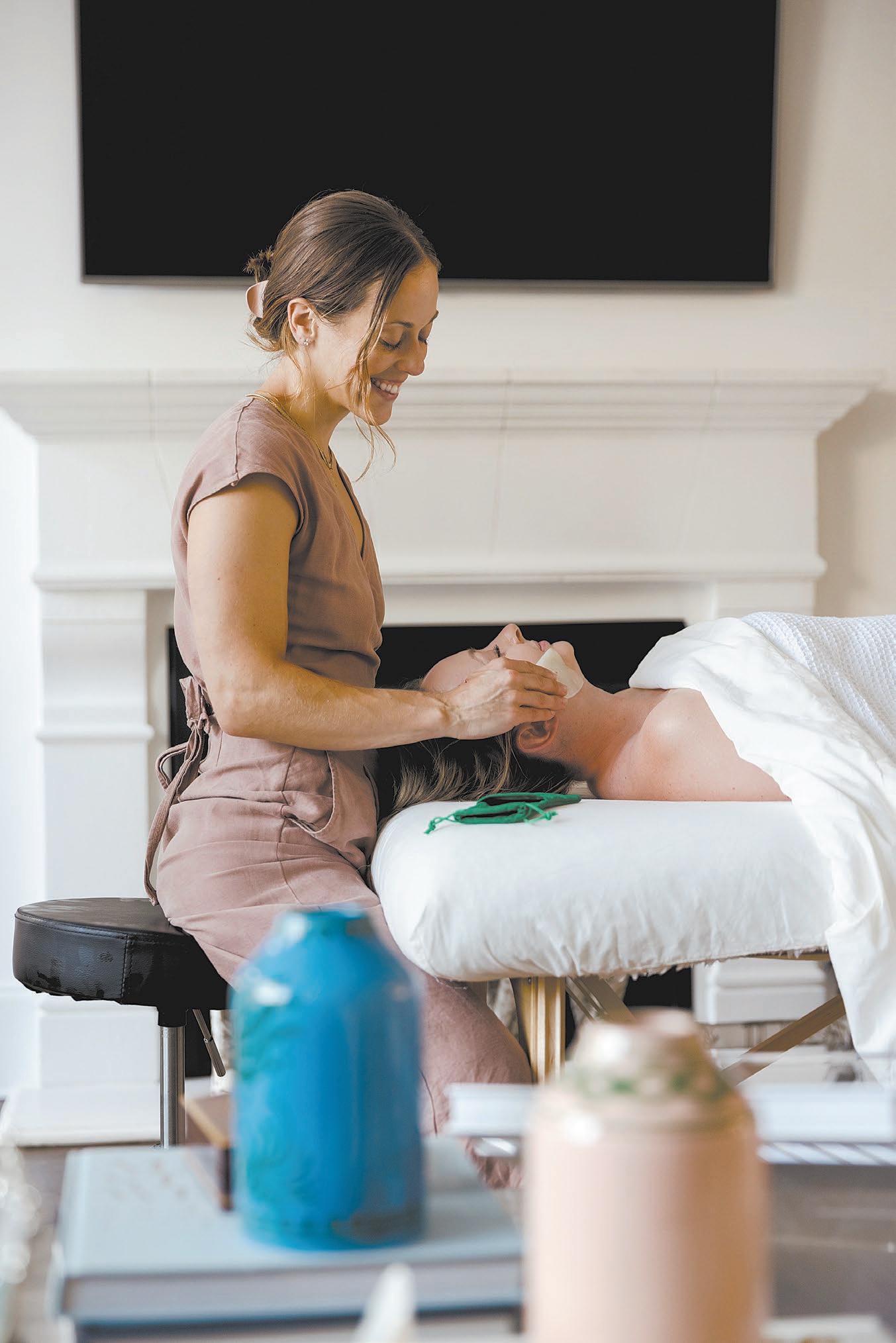
3 minute read
TASTEMAKER
Color Crush
Susan Currie’s style is anything
but neutral STORY: Claire Ruhlin
Although interior designer Susan Currie began her career as an assignment editor and news writer in the television industry, she couldn’t ignore her passion for design. “I was already helping family members and doing projects on my own,” Currie says. “I had fun designing and creating spaces that were beautiful, cohesive and functional.”
The Brookwood Hills resident went back to school to earn a degree in interior design, and in 2008 she opened Susan Currie Design in New Orleans. Her firm now has a satellite office in Brooklyn and a full-service office at the Atlanta Decorative Arts Center. Here, we catch up with Currie about her design philosophy and expert use of hues (her firm won Best Use of Color at the Luxe Residential Excellence in Design Awards in June).
What lessons from your time in the television news business have you applied to your interior design business? You learn to think on your feet; there's always breaking news that might change things. And that's what can happen on a design project you plan. Sometimes you discover things in a house, and you have to alter your plans or decide how you're going to handle the challenge. As a designer, I feel like I'm a problem-solver for my clients. They tell me what they like or don't like about their home. We listen to what they're saying, hear their vision and help them get to where they want to go.
How would you describe your design style? My style is anything but neutral. I really like to find ways to incorporate color. I also like to create fresh, clean looks that incorporate some tradition. That might be a beautiful antique that the clients already have. We always try to keep it fresh and modern, not dated or stale.
What’s your advice for homeowners who are hesitant to dip their toes into designing with color? If my clients say something like, “Hey, I’m a bit afraid of this,” or “I want to keep my walls neutral,” I look to find other ways we can bring in rich, saturated colors, whether it's through pillows or upholstery. It’s really about introducing enough to get them comfortable. Right now with how stressful our world can be, I think people want to get back to nature. So sometimes those colors that you see in nature are more calming and can make a space inviting.
How do you create transitional designs while respecting existing historical architecture? I don’t lean towards anything too fussy. For instance, if a home has classical, ornate architectural details, like Corinthian or Ionic columns, it’s nice to balance that with some things that are more simple and clean-lined. That could be a beautiful console table with a simple stone top and an iron base with some simple medallions. It’s that balance of mixing cleaner lines with more ornate details.
Congratulations on being a regional finalist in Sub-Zero/Wolf/Cove’s Kitchen Design Contest. How do you approach kitchen design differently? I think with kitchen design, the space has to be beautiful and, more importantly, functional. You have to get to know how a client uses a kitchen and really think about the right location for everything. You have to open up cabinets and see what they have. Do they have vintage pieces? Do they like to bake? I think about that and offer suggestions on how to make it work better for them. For example, if we put the right organizational components inside drawers and cabinets, is that going to make it easier for them to work in the kitchen? It’s also great putting in fabulous appliances that people will be able to use for years. n
SUSAN CURRIE DESIGN • 404.254.2172 susancurriedesign.com • @susancurriedesign
STYLISH

Gua Sha, What?
Page 48
Discover what to expect from the traditional Chinese medicine technique and its benefits.










